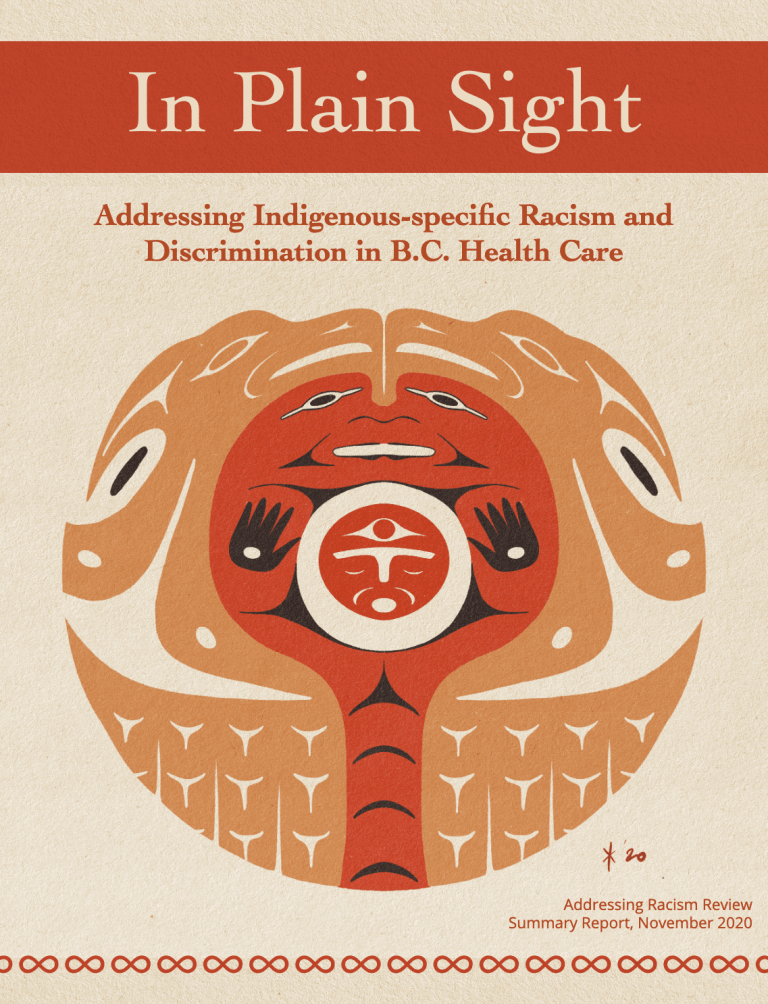Search the Baseline Project
To search the recommendations database, please visit the database main page.
To search the recommendations database, please visit the database main page.

In November 2020, the summary report “In Plain Sight: Addressing Indigenous-specific Racism and Discrimination in B.C. Health Care” was published following an investigation into Indigenous-specific racism in B.C.’s health care system, including claims about a game in which health care workers in some B.C. hospitals guessed the blood alcohol levels of Indigenous patients. Recommendations from the review stress the need for immediate, principled and comprehensive efforts to eliminate prejudice and discrimination against Indigenous Peoples.